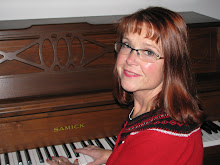We all know that children play for fun. But the truth is that as they play they are learning. When children play they use their senses-touch, taste (not appropriate at times, but what can we do?), sight, hearing and smell- and that's how they learn about their surroundings.
Play can stimulate children's intellectual, emotional, social, and physical development. Also, through play they practice and repeat. This is an important way to make neural pathways stronger, making things more automatic, learning skills better.
Play also helps increase attention and focus, social-emotional skills (when they play with other children), and even problem-solving techniques (especially when they play by themselves). But parents and caregivers should also be involved in the child's play to help with language, motor skills, and self-esteem.
Here are some ideas for you to be involved in your child' s play:
1) Observe the child. What are his/her interests? What kinds of toys does he/she like? This way you will provide with more opportunities to play with certain activities or objects they are already interested in. The more motivated they are, the more attention they will pay and more learning will occur.
2) Once a day or more, sit down and play with your child. Ask them, What do you want me to do? Follow their game! Don't do things for them or try to "fix" it. They are trying to figure things out for themselves. Let them!
3) Talk while you play! Don't tell them what to do, but you can describe what you are doing as you do it. Use appropriate sentences for their ages. I am not suggesting you use baby talk to your 3 year old, but use short sentences that are appropriate for what they are learning. That way they are learning more vocabulary and practicing conversational skills.
Some ideas of games appropriate for different ages:
1) Babies- play peekaboo; provide many opportunities to feel and hear different textures and sounds.
2) Toddlers-pretend play. Have a castle? Pretend there is a prince, a princess and dragons! Have a car? Pretend you are driving around town, what do you see?
3) Preschooler-read books, look at pictures, draw your own pictures, or dance. At this age we need lots of eye-hand coordination and motor movements.
4) Elementary school age-play games with rules (board games, video games, physical games like "tag")
5) 9-12 years old- focus on more structured play, like sports.
I think I am still in my elementary school age stage! I love board games! Who doesn't love a good game of Pictionary or Star Wars Monopoly?
What is your favorite kind of game to play? Please Comment!
This article was oringially published by vcabrera77 April 20, 2010 at 6:50 pm

No comments:
Post a Comment